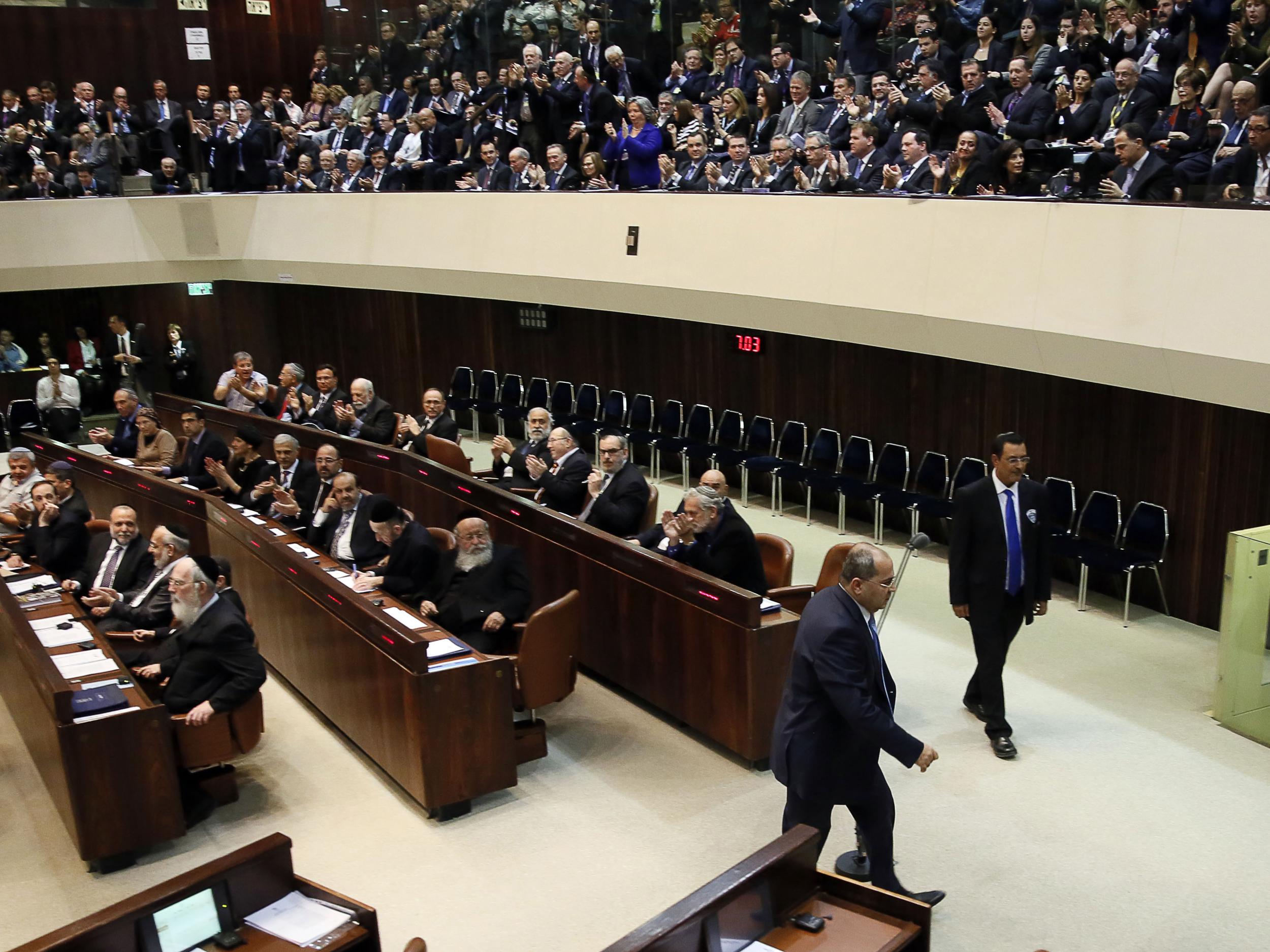Israeli parliament decides to ban wearing of miniskirts in the Knesset
Of 33 female politicians elected to the Knesset, 28 reported having been sexually harassed or assaulted in their lifetime, and two said it had happened in parliament

Your support helps us to tell the story
From reproductive rights to climate change to Big Tech, The Independent is on the ground when the story is developing. Whether it's investigating the financials of Elon Musk's pro-Trump PAC or producing our latest documentary, 'The A Word', which shines a light on the American women fighting for reproductive rights, we know how important it is to parse out the facts from the messaging.
At such a critical moment in US history, we need reporters on the ground. Your donation allows us to keep sending journalists to speak to both sides of the story.
The Independent is trusted by Americans across the entire political spectrum. And unlike many other quality news outlets, we choose not to lock Americans out of our reporting and analysis with paywalls. We believe quality journalism should be available to everyone, paid for by those who can afford it.
Your support makes all the difference.Israel’s parliament has banned politicians, other employees and visitors from wearing miniskirts and short dresses.
The revised dress code at the Knesset applies immediately to everyone entering the building, officials said on Wednesday.
“Entrance to the Knesset is permitted only in appropriate attire,” stated a notice on the official Knesset website. It stipulates there should be no tank tops or spaghetti tops, cropped tops, shorts or three-quarter length trousers, ripped trousers, shirts with political slogans, short skirts or short dresses, flip-flops or open-back clogs, were to be worn in parliament, by "adults and youth aged 14 and over”.
A Knesset spokesman said the dress code had already existed, but it was ambiguous and poorly enforced.
“This a not a new code but, rather, a revision of a previous dress code, which circulated several weeks ago, and is intended to clarify, as much as possible, the ambiguity that existed in the past — while expressing sensitivity and attempting not to hurt the feelings of our visitors and guests,” Yotam Yakir told the Times of Israel.
The banning of short skirts and short dresses, however, was said to be a new addition to the old guidelines by a parliament source.
The source told the Marker the new rule had not caused any issues in the Knesset so far.
“In the few weeks since the additional regulations, we have only had one incident where we had to ask a visitor to change her clothing, which she complied with and accepted completely,” the source said.
They added that Knesset security had been instructed to only enforce the rules on people of the same gender.
“We have decided that female guards will comment on women’s dress and male guards will comment on men’s dress,” the source said.
33 of the Knesset’s 120 lawmakers are currently women, a record number in the country. But despite progress, many have complained of discriminatory treatment.
Earlier this month a new synagogue was opened on the site, causing the Knesset to come under fire when it was discovered the tiny women's section could only fit about half the female MPs inside and had no room for the hundreds of other women who work in the building everyday.
In spring 2016, a survey by an Israeli television channel found a number of the female MPs had been sexually harassed or assaulted in the past, and at least two said those experiences had occurred in the Knesset itself.
“Even today, the fact that I’m a single woman in the Knesset puts me in unpleasant situations,” Merav Ben Ari, a Knesset member from the centrist Kulanu political party, told Israeli Channel 2. “Sometimes people make comments," she said. "I don’t want to elaborate, but there was a situation recently in the Knesset, and I took care of it.”
Rachel Azaria, also of Kulanu, said she had several bad experiences in her time as a Jerusalem City Council member.
“There was an incident that repeated itself in the planning and building committee, of which I was a member,” Ms Azaria said. “Another city councilor would make remarks of a sexual nature regarding things that I said, and the whole room would burst out laughing. I consulted with the legal adviser and other officials, and they all said there was nothing to be done. It interfered with my ability to function, and I was very distressed.”
Join our commenting forum
Join thought-provoking conversations, follow other Independent readers and see their replies
Comments